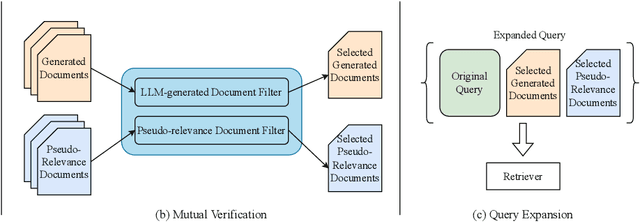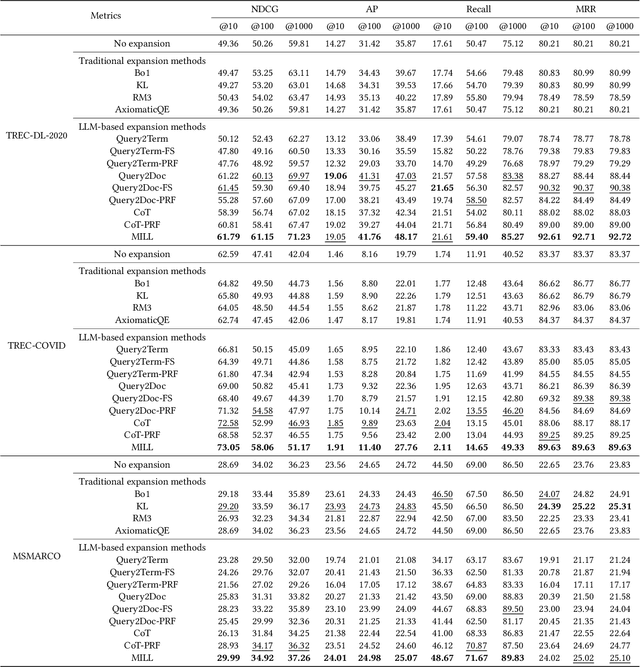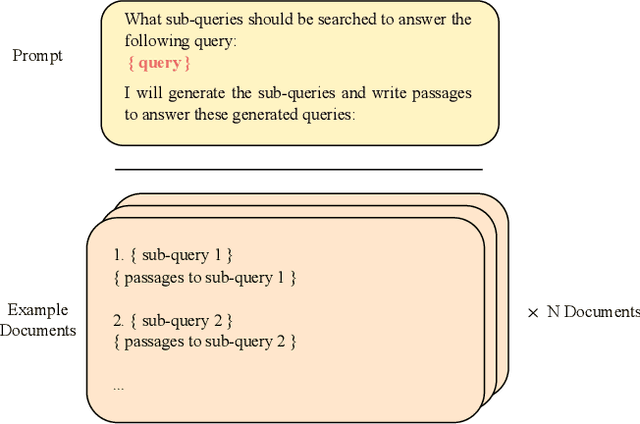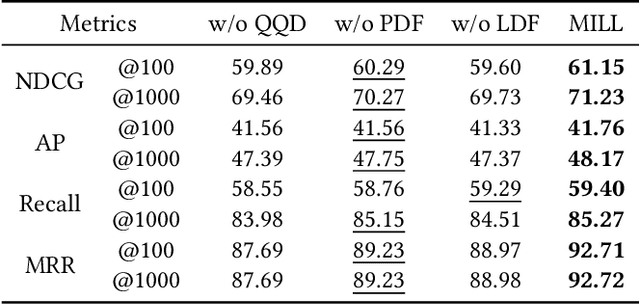MILL: Mutual Verification with Large Language Models for Zero-Shot Query Expansion
Paper and Code
Oct 29, 2023



Query expansion is a commonly-used technique in many search systems to better represent users' information needs with additional query terms. Existing studies for this task usually propose to expand a query with retrieved or generated contextual documents. However, both types of methods have clear limitations. For retrieval-based methods, the documents retrieved with the original query might not be accurate enough to reveal the search intent, especially when the query is brief or ambiguous. For generation-based methods, existing models can hardly be trained or aligned on a particular corpus, due to the lack of corpus-specific labeled data. In this paper, we propose a novel Large Language Model (LLM) based mutual verification framework for query expansion, which alleviates the aforementioned limitations. Specifically, we first design a query-query-document generation pipeline, which can effectively leverage the contextual knowledge encoded in LLMs to generate sub-queries and corresponding documents from multiple perspectives. Next, we employ a mutual verification method for both generated and retrieved contextual documents, where 1) retrieved documents are filtered with the external contextual knowledge in generated documents, and 2) generated documents are filtered with the corpus-specific knowledge in retrieved documents. Overall, the proposed method allows retrieved and generated documents to complement each other to finalize a better query expansion. We conduct extensive experiments on three information retrieval datasets, i.e., TREC-DL-2020, TREC-COVID, and MSMARCO. The results demonstrate that our method outperforms other baselines significantly.
 Add to Chrome
Add to Chrome Add to Firefox
Add to Firefox Add to Edge
Add to Edge